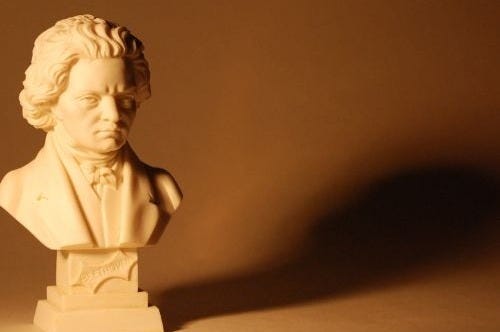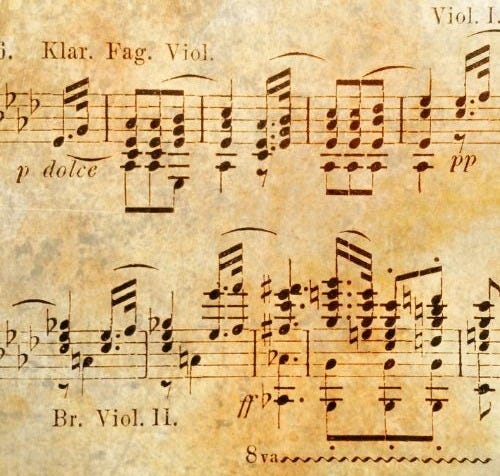Ludwig van Beethoven: The Power of Perspective in the Face of Suffering and Serial Adversity.
This post gives you a glimpse of the forthcoming Maono premium insight entitled “Redefining Suffering: How Meaning Shapes Human Perspectives and Guides your Path to Growth."
Introduction
Understanding and shaping the right perspective on suffering is not just an intellectual exercise—it's a vital, transformative endeavor. When fateful life events strike, the resulting suffering, with its versatile existential implications, demands more than just a rational or psychosocial response. Suffering involves a complex interplay of rational, philosophical insights, faith, and spirituality. To truly navigate the season of suffering and harness its potential for growth, one must embrace a holistic approach that transcends mere rationality. This experience requires a deliberate, focused practice that integrates deep understanding with actionable strategies. Our four-year field research that resulted in Beyond Brokenness has shown that individuals can unlock profound insights, foster resilience, and achieve genuine growth and transformation by cultivating the right perspective on suffering and adversity.
Beethoven: Finding Harmony in a Life of Serial Tragedy
Ludwig van Beethoven's life is a living testament to the power of perspective in the face of suffering and serial tragedy. Despite the relentless challenges he endured—poverty, the loss of his hearing, family conflicts, and personal heartache—Beethoven refused to be defined by his circumstances. Instead, he shaped his suffering into a pathway for transformation, using serial adversity as a catalyst for creativity and greatness.
Born in 1770 into a family of musicians, he remains celebrated as one of the greatest classical composers the world has ever known. Beethoven’s genius was unparalleled, and at his peak, “he dominated the history of classical music like no one else before him or since.” (Britannica - https://www.britannica.com/biography/Ludwig-van-Beethoven)
Yet behind the legend lies a story of suffering that would have broken many. His early childhood in Bonn began with promise. Born into a well-off family, Beethoven experienced a brief glimpse of comfort and security. But tragedy struck early. At just three years old, he lost his grandfather, the cornerstone of the family’s wealth. What followed was the rapid decline of his father into alcoholism, plunging the family into poverty. By the age of 11, young Ludwig was forced to drop out of school. At 18, he had to take full responsibility for his family, earning a living through music lessons to support his parents and siblings.
Poverty, the first challenge he faced, forged Beethoven’s resilience. He became the breadwinner of his family and built a network of wealthy patrons who admired his remarkable talent. Soon, the second tragedy began to unfold, threatening not only his livelihood but also the very core of his being: Beethoven realized he was losing his hearing. By 1802, the diagnosis was clear—his hearing loss was progressive and irreversible. Imagine the devastating irony: a musical genius losing the sense most essential to his art. For Beethoven, the world began to collapse around him. In a letter to his brothers, he revealed his torment, describing how he now faced "a permanent malady whose cure would take years, or perhaps, never come at all." Despair overwhelmed him, and for a time, he even considered taking his own life.
But, it was in this darkest moment that Beethoven shaped a new perspective on his tragedy and made a choice that would define him for eternity. Summoning extraordinary courage, he vowed not to surrender to fate and to fight back. In a letter to his friend, Franz Wegeler, Beethoven wrote, “I will seize fate by the throat.” He went on, “If only I were rid of my affliction, I would embrace the whole world.” This bold declaration signaled his refusal to succumb to despair. Despite the silence enveloping him, Beethoven chose to continue composing, to keep creating. He embraced his suffering in an act of extraordinary defiance, drawing from it a bottomless well of creative genius.
By 1819, Beethoven was completely deaf. Communication with others was reduced to writing, yet his compositions only grew more powerful. Some of his most profound and celebrated works, including the Ninth Symphony, were created in the final decade of his life after deafness had claimed him entirely.
Beethoven’s triumph over tragedy didn’t stop with his hearing loss. Life continued to test him in brutal ways. He endured bitter family conflicts, the death of his beloved brother, and a painful three-year legal battle with his brother’s widow for the custody of his nephew, Karl. The boy’s continual conflicts with Beethoven led to his own attempted suicide, adding yet another layer of grief to the composer’s heartache.
Then, there was Beethoven’s love life, which was marked by unrequited feelings and failed relationships. He never married, dying as a bachelor despite his passionate longing for companionship. Yet, despite this loneliness, Beethoven’s spirit remained unbroken. An 11-year-old school dropout with no family support, he achieved greatness that few, in his condition, could even dream of by overcoming every barrier life threw in his path. That is simply the power of perspective and the spirited determination not to succumb to fate and despair.
When his Ninth Symphony premiered in 1824, Beethoven, now completely deaf, could not hear the roaring applause of the audience. One of the soloists had to help him turn around to face the audience so he could witness the rapturous standing ovation his masterpiece had earned. It was a poignant moment—a testament to the depth of his suffering and the magnitude of his victory over it. The power of perspective on suffering and tragedy!
Beethoven’s life is not just a story of genius; it is a story of resilience. He faced loss after loss, yet he continued to fight. His response to suffering is one of the most awe-inspiring in history. Beethoven did not just survive adversity—he transcended it, transforming his pain into some of the most beautiful music the world has ever heard.
Beethoven died on March 26, 1827, in Vienna. Over twenty thousand people attended his funeral. Today, Beethoven is revered not only as the greatest musical virtuoso who ever lived, but also as a symbol of the human spirit’s capacity to endure, to create, and to rise, no matter the odds.
Beethoven did not recover his hearing to embrace the whole world, but his music did and still embraces humanity.
What can you expect from this forthcoming premium Insight?
The Insight provides an in-depth exploration of the various roles meaning plays in shaping human perspectives on suffering, trials, or tragedy. These include:
Firstly, suffering is intricately linked to our perception of time. As we navigate through life's trials, our experience of suffering is deeply intertwined with our temporal awareness.
Secondly, our sense of self-worth is critical in how we experience suffering. When confronted with pain and suffering, our self-worth consciousness influences our perception of what we deserve and how we compare to others.
Thirdly, suffering can be understood as a narrative of loss. According to Tate and Pearlman, our sense of self is deeply narrative, shaped by our relationships, roles, and personal stories.
Fourthly, suffering is considered a spiritual phenomenon with a refining and redemptive role.
The forthcoming Maono Insight introduces actionable strategies for shaping human perspectives and outlines a guideline for action. Navigating the complex terrain of suffering involves practical strategies for transforming and enhancing our perspective. Like Beethoven, we can better manage and transcend our suffering by adopting actionable insights. Through this exploration, Maono aims to provide a holistic understanding of suffering and practical tools for navigating adversity. Embracing these insights can help us transform our suffering into a source of strength and resilience.
The forthcoming Maono Insight is yours to discover.
Join the Maono Community Today!
References:
Kerman, Joseph, and Alan Tyson. "Beethoven, Ludwig van." The Grove Book of Operas, Oxford University Press, 2006.
"Ludwig van Beethoven." Encyclopaedia Britannica, 2023. https://www.britannica.com/biography/Ludwig-van-Beethoven.
Solomon, Maynard. Beethoven. 2nd ed., Schirmer Books, 1998.
Swafford, Jan. Beethoven: Anguish and Triumph. Houghton Mifflin Harcourt, 2014.
Tate, A., & Pearlman, D. (2019). What We Mean When We Talk About Suffering: Philosophical Reflections on Narrative and Self-Understanding. Journal of Philosophy and Medicine, 36(2), 145-158.
Thayer, Alexander Wheelock. The Life of Ludwig van Beethoven. Princeton University Press, 1967.



